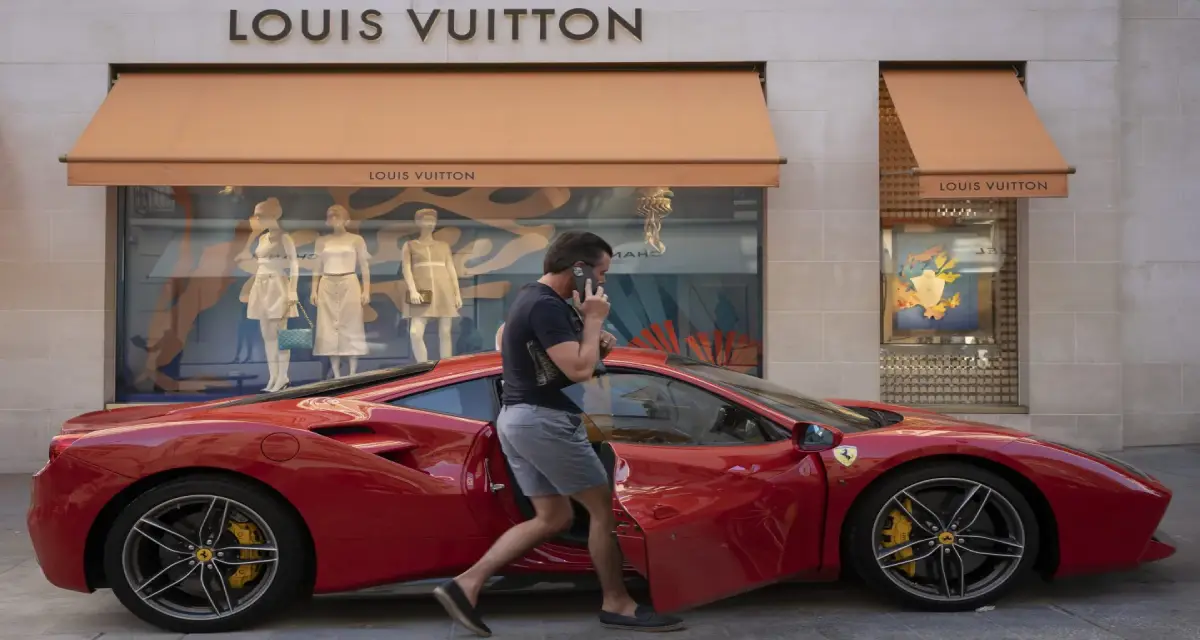

In a bold move that marks a significant shift in its storied history, Ferrari, renowned for its high-performance gas engines, has embarked on the journey towards electrification with the inauguration of its state-of-the-art "e-building" facility in Northern Italy. This 200-million-euro facility, operational since last month, dwarfs Rome's iconic Colosseum in size and is pivotal in Ferrari's strategy to embrace hybrid and fully electric vehicles.
The decision comes amidst a challenging landscape for the automotive industry, where the transition to electric vehicles (EVs) has been fraught with financial burdens and fluctuating global demand. Ferrari's leap into electrification underscores its commitment to adapting to evolving consumer preferences and stringent environmental regulations.
Luxury carmakers like Mercedes-Benz and Lamborghini have encountered setbacks in their EV ambitions, scaling back their plans as Tesla, a pioneer in electric mobility, faces declining sales. Ford Motor, too, has adjusted its production focus towards hybrids amid financial losses from EV ventures. Geopolitical tensions, such as the escalating trade war between China and the West, further complicate the industry's outlook.
Despite these challenges, Ferrari views the shift to electrification as an opportunity to attract a new demographic: affluent environmentalists. Scheduled to unveil its maiden fully electric model in late 2025, Ferrari aims to leverage its brand prestige and craftsmanship to appeal to consumers seeking sustainable yet high-performance vehicles.
Details about Ferrari's upcoming EV remain cloaked in secrecy, heightening anticipation among enthusiasts and analysts alike. Speculation abounds regarding crucial aspects such as battery life, sound design, aesthetics, production volume, and pricing. Analysts predict Ferrari's electric debut could surpass the exorbitant price tag of Porsche's $286,000 Taycan Turbo GT, potentially making it one of the most expensive EVs on the market.
Ferrari's transition to electric vehicles holds broader implications beyond its prestigious brand image. While regulators advocate for EV adoption to combat climate change, skepticism persists among traditional combustion engine enthusiasts. Winning over Ferrari loyalists accustomed to the iconic "vroom" of its gas-powered engines poses a formidable challenge, underscoring the emotional and psychological ties associated with automotive heritage.
Martino de Ambroggi, an automotive analyst at Equita, emphasizes the pivotal role of Ferrari's EV strategy in reshaping industry perceptions and profitability. "It’s worth watching whether a Ferrari EV can maintain the kind of price premium you’d associate with a Ferrari," he remarks, highlighting the critical test Ferrari faces in demonstrating that EVs can yield substantial financial returns.
Central to Ferrari's electric endeavor is its collaboration with LoveFrom, the design agency co-founded by Jony Ive, Apple's former design chief, and renowned industrial designer Marc Newson. This partnership underscores Ferrari's commitment to marrying cutting-edge technology with iconic design, aiming to redefine luxury in the electric vehicle market.
As Ferrari prepares to unveil its electrified future, the automotive world awaits eagerly to witness how the legendary marque will navigate the complexities of EV production, market acceptance, and profitability. The success of Ferrari's electric aspirations could potentially herald a new era in automotive innovation, influencing industry trends and consumer expectations worldwide. Amidst uncertainties, Ferrari's journey into electric cars stands as a testament to resilience and adaptation in an ever-evolving global automotive landscape.
Also Read: